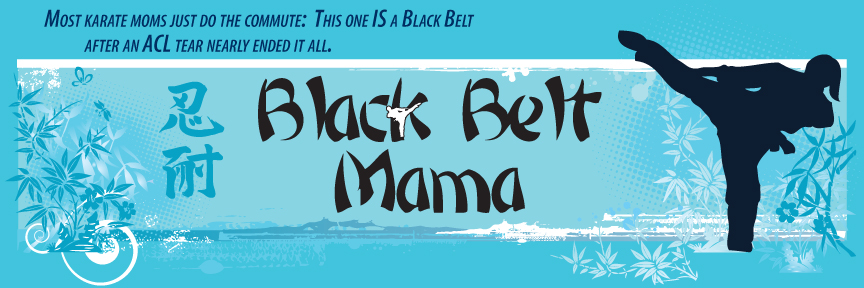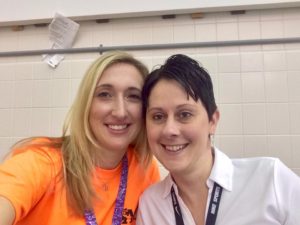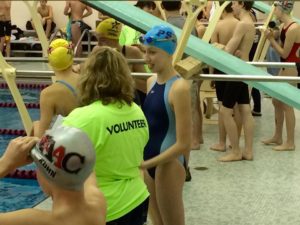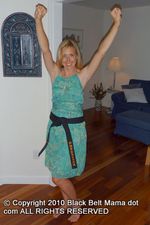We Took the Long Way
It is difficult to know how to start after such a long hiatus. Writing has always been a way for me to sort things out, and shaking the rust off will take some time. After all, writing, like most other things, is better with practice. It’s a skill that comes back slowly until the wheels are greased once again. There may not be anyone left out there who ever thought I would return. But that’s ok too. Writing has always been for me; the audience I’ve gathered over the years has been an added and unexpected benefit. Thanks to Facebook, which I still maintain did much to kill blogging in general, I’ve been able to keep in touch with many of my readers during the absence. I’m grateful for your friendship around the world and if you’re back reading this? Thank you even more for having faith I’d be back some day.
After picking up and moving five hours away from family, friends, and all we knew and loved, maintaining a blog while trying to settle into our new life, proved impossible. But it’s been over four years now. I had to move away from a lot of things I loved and cared about; but writing here doesn’t have to be one of them anymore.
Albright Aquatic Club was one of the things we loved and had to leave. A year-round USA Swimming team, AAC was small and felt like family. When we first joined the team, only a handful of swimmers were even competing in meets, less than 10%. Most kids were there to stay in shape for other sports. Some kids were there to jump-start their high school swim season, and when high school swimming started, we never saw them again. We were asked to take over as Co-Presidents in 2011, when the current President decided to take his daughter elsewhere to swim. We knew little about swimming, other than the summer league experience I had gained as President of that organization. But USA Swimming was a different world, with much more to do in order to lead a successful organization.
We quickly learned how to run the club, and then set out to improve our club’s ranking in USA Swimming and to recruit more swimmers to our team. It didn’t take long. After making a much needed coaching change, our numbers soared. We had a limited number of kids we could safely and successfully accommodate; most of our groups filled in less than 24 hours. Parents would drive to our home to hand in their registration papers first. With a kind, knowledgable and well-respected coach at our helm, our rankings improved and our swimmers steadily improved too. The record board needed to be updated on a regular basis. Our kids were qualifying for Junior Olympics and Senior Champs in record numbers. Our coaching staff was doing amazing things. We were so happy about the status of our team that felt more like a family. Personally, our girls were improving at a rapid rate and everyone was having fun.
And then, in the spring of 2014, Mr. BBM got a job offer for a position several states away. He couldn’t really say “no.”
I broke the news to our Head Coach, and we shared a sad moment in the equipment room. We had worked so hard and come so far. We had little time to transition to someone new, but we eased the concerns and promised to be there to assist the team in any way possible. It only made sense to transition to our best friends; one was already playing the role of treasurer. I started creating a transition plan and began to delegate all of the duties of the club. We had no team administrator so registration, meet entries, website maintenance and everything else was my responsibility, with billing the responsibility of the treasurer. I was an unpaid volunteer and poured my heart and soul into the team, and into making sure it would be ok.
After working so hard and so long to get the right people in place to be able to host a first invitational, I was devastated as I realized we would already be gone when we were to host that first meet, in December of 2014. In our LSC, meet directors had to jump through some serious hoops in order for their team to be able to host a meet. Our successors wouldn’t be quite ready yet. It was a no-brainer decision to travel back to Pennsylvania to help our club host that meet, so we did. It had been the same decision to travel back to Pennsylvania for “Counties” with our summer league team, less than a month after we had moved five hours away also. We have always been team players.
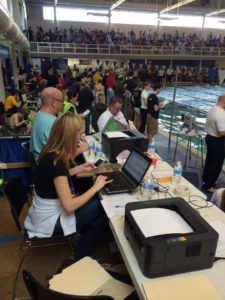
Me, working at Middle Atlantic Junior Olympics so I would have enough sessions logged to be able to help my team run their own invitational.
Although it got off to a rocky start with some equipment malfunctions at the pool we rented, by the next morning, we were rolling and things were running smoothly. It was a packed meet for a first meet. My girls wore their new team caps and represented their club from several states away; but it was like they had never left this team, our second family.
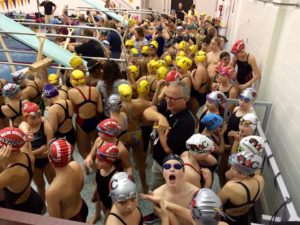
The meet was packed; and we were so excited to be hosting our first ever invitational meet. -December 2014
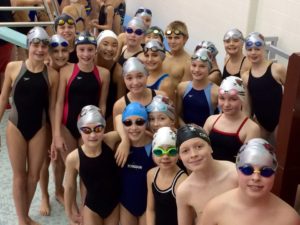
Returning to our team for the meet, it was like we never left. No one minded the blue caps. -December 2014
By the end of the meet, I knew my team was now ready to roll without me. And they did, quite successfully for another two years. The team had built up a financial reserve. They were being led by a wonderful coach and his team of amazing assistants. Whenever we traveled home, the girls practiced with the team and met up with our coach. We’ve continued to stay in touch with almost all the coaches who were a part of our girls’ early years.

When there wasn’t a pool to visit anymore, we still met up with our coach. To this day, we still do. -Summer 2016
AAC had moved up hundreds of spots in virtual club rankings and their meet participation was at an all-time high. It’s amazing how much incentive some cool bag tags with “Competitive Team” on them could suddenly have kids wanting to go to meets, and realizing how much fun it was to go compete. It seemed that nothing could get in the way of this team.
When we were asked to take over as Co-Presidents in 2011, we were also approached by the college where we practiced, who had started the team many years before. They no longer wanted to handle payroll for our coaches. They wanted us to become our own 501c3. We took our team through that process and successfully achieved it in only a few weeks instead of the typical few months. Our pro-bono accountant, from one of the biggest firms in the area, had been impressed with how quickly we had achieved 501c3 status. Now that we were gone a few years, and the head coach for the college was also new, the college wanted to take the club back over again. With our successors also now relocating out of the area, this seemed like the best option for the team.
As I understand it through an email I received from the founder of the club, although the head coach of the college team may have had big ambitions for taking over the team, the controller at the college didn’t want to take over the financial responsibility of the club, and that was the final nail in the coffin. The team’s lane space was rented to a high school team without a pool. Our usual practice times were switched to a 7:30 p.m. start time with a 10 p.m. end time. There was no way that was going to work. The team was unable to start the 2016-2017 season.
AAC was no more.
I was heartbroken. I reached out to anyone I could think of who might be able to help save the team. At my request, the woman who had founded the club in 1994 in her spare time when she wasn’t coaching the college team, reached out to people at the college to no avail. An alumni of the college who is a big swimming supporter who had always targeted his donations to the swim team made some calls as well. But nothing could be done to save the team that had instilled the love of swimming in my girls. Our original swim family had been destroyed.
On the day that I realized every avenue had been exhausted and that it was too late, I was inconsolable. I told friends about what had happened, how upset I was about it, and how heartbroken I was that there was nothing I could do. My mind was five hours away, with the team, coach, and family we had adored. I had been two years removed from the team, and established in our new hometown, but it did nothing to ease the hurt of knowing AAC would no longer exist.
One year later, in August of 2017 and now the President of new team, I would find myself sitting across the table from lawyers and board members of the pool our new team rented, being told with just weeks until our season would begin, that our lease was being terminated. In just two weeks time, our board pulled together, found pool space and saved our team and the jobs of those employed by it. I couldn’t imagine over 200 swimmers being displaced on my watch. I did everything I could to insure our team’s survival, and our board did just that. Our 2017-2018 season started on time. We continued to move our team forward. Perhaps it was because I knew how much it hurt to lose a team that was a family, that I fought so hard to save it.
Fast forward another year, and we transitioned to a new satellite team.
Last week, my oldest daughter, now a senior in high school, said “I love swimming again. It feels like AAC.” On a separate drive to the pool, my youngest daughter, now a 7th grader, said “I just love going to practice. It reminds me of AAC.”
Sometimes we take the long way on a journey to find out where we truly need to be. AAC in Pennsylvania may be gone; but we’ve finally found our AAC here.
The Sport Specialization Debate and Why I’m Sick of Hearing About It
Filed under: Lessons I've Learned, Sports, Things that get my gi all in a bunch
“When dealing with critics, always remember this: Critics judge things based on what is outside the context of their understanding.” -Shannon L. Alder
Several years ago, during the summer swim season, a swim dad approached me and began asking me questions about my oldest daughter and her swimming. At that point, she had been a year-round swimmer for two years. Her improvement from the two summers prior was nothing short of remarkable. I assumed he was talking to me because he was interested in the USA swimming program where she swam, the one I was President of at the time. However, after a few minutes, the conversation turned into something much different. He began talking about kids who play just one sport, and how I was setting my daughter up for injury and failure. Because he didn’t know me (or take the time to get to know me), he was unaware that my daughter had played T-ball, field hockey and had taken a combination of karate and ju-jitsu classes for five years, not to mention the voice lessons. He didn’t know that after trying all of those things, she came to me and said that swimming was what she really loved and that she wanted to focus on that more intensely. It was especially surprising to me, because at the time, she wasn’t very good at it. I was impressed with her desire to get better and her obvious passion for a sport she loved, despite not having had much success.
I spent that summer, and many after it, listening to parents whose kids did not swim year-round making excuses for why their kids weren’t as fast as my kid. I don’t know why they felt such a compulsion to explain this to me. I certainly wasn’t concerned with what their child was or was not doing; unlike them, I wasn’t interested in making comparisons. The nice thing about swimming is that there are times achieved at each meet, so our daughter was only comparing her performance to her prior performances. And she liked what was happening as she watched her times continue to drop. I made it a point to avoid this dad and others like him. I call them the compare/contrast parents. They are constantly holding up their child and anyone who competes against them. They are constantly looking for all the ways their child is better, and all the ways they can get the edge for their kid. When they find one thing that someone else is better at than their child, then it’s excuse-making time. It’s time to cherry-pick an article or two that supports their viewpoint and puts others down to make themselves feel better. It must be exhausting to live that way, which is why I don’t.
Enter the Facebook article re-posts accompanied by stern warnings for parents of single-sport kids, of course from the parents whose kids play multiple sports. A rudimentary chart began circulating on Facebook regarding Ohio State’s football recruits. The number of players on the team who played multiple sports: 42; the number who were one sport only: 5. I guess this is supposed to send me a message that if I want my daughter to play football for Ohio State, I better sign her up quickly for a bunch of other sports. I see this every couple months, the onslaught of negativity at kids (and their oh-so-naive parents) who focus on one sport earlier than others. I get it; there are only so many sports scholarships out there. All of our kids are competing for them, I guess, if that’s your focus already, when your kids are still in elementary and middle school (eye roll). Here’s the thing about our family: while my daughter loves to swim and has expressed that she would possibly like to swim in college, we did not engage her in year-round swimming at the age of 9 so that we could start her on the road to a swimming scholarship. If she gets one some day, that would be wonderful; and I’m sure we’ll all be very pleased. However, that is not, nor has it ever been, our focus with her. Our focus has been on enabling our daughter to achieve at the level she wants to, in a sport that she loves.
All of these articles and re-posts make the same faulty assumption, that parents who support their child specializing in one sport expect scholarships because of it, and force their child into specialization for this very reason. This is a completely false notion and writers of these articles, and all the parents who post them, should stop making assumptions about parental intent. Many things can change from the time a child is elementary/middle school aged to high school, when coaches are actually starting to look at your swimmer. There are a lot of swimmers who peak at age 12 or younger. Performance levels as a “10 and under wonder” do not translate into indications of future success, which is why we have always tried to stay level-headed about swimming, our daughter’s achieved times, and what that might mean for her future. The truth is, what she’s doing now, or what she did years ago, means next to nothing when it comes to her future swimming. She swims because she loves to swim; she has zero interest in playing other sports right now. And although other parents clearly feel very strongly about our daughter’s choice, her choice is perfectly ok.
Swimming has done wonderful things for our daughters. It has allowed them to get into crazy good shape; their endurance is unreal. They have learned about the importance of commitment, attention to detail/technique; and we strongly feel that it’s made both of our girls into very focused students as well. They’ve learned time management and study skills because they work around their swimming/school schedule. In addition, swimming has had a tremendous influence on our younger daughter’s health. A year ago, doctors thought she may have early onset scoliosis. Because I went through the 6-month checkups myself as a kid, I wanted to do something different for my daughter, to see if we could avoid future treatment. After 6 months of seeking help from a PT friend of ours, and having those exercises reinforced during her dry land training at her swim club, and through her in-water practice, the curve in her spine went from almost 9 degrees to less than 5, a number not even considered scoliosis. The specialist at Shriner’s was shocked into complete silence as he compared the two x-rays, before quizzically wanting to know what we were doing. When we told him about her swimming and dry land training, he was shocked and impressed, and told us to keep on doing what we’re doing. It turns out that swimming may save her from the dreaded 6-month checkups for a crooked spine.
Most of the articles warning against single sport specialization point to burn-out and overuse injuries, which is certainly a major concern if your child is a pitcher or a quarterback, using the one same explosive motion all the time, every day, year after year. Swimming is a very symmetrical sport, and a life-long sport with good reason. Have you ever checked out the lap lanes at your local gym? They’re loaded with people who’ve been swimming for decades. A couple articles have pointed out that swimming is quite different from other sports when it comes to specialization in several ways. One of them, “Sport Specialization at a Young Age: Is Swimming Different?” by Dr. Rod Havriluk, Ph.D. states the following:
“The most obvious difference between swimming and other sports is the performance environment. Most sports are land-based, while swimming is performed in the water. Natural human movements (like running, jumping, and throwing) that are applicable to most land-based sports are ineffective in the water. While diversification offers practice on similar skills under different sport conditions, these skills are counterproductive for swimming. Humans cannot rely on innate movement patterns to achieve an expert skill level in swimming. Swimming skills must be learned and the age at which an athlete specializes must be considered.
Most land-based ball sports require movement skills in many directions using varying amounts of range of motion at each joint. Practice for a secondary sport may even train an athlete in a select skill better than the primary sport. For example, practice anticipating and reacting to an opposing player in basketball may help develop similar skills in football. Swimming, however, requires, repetition of the same effective movement sequence on every stroke cycle. Swimming strokes are generally not even remotely replicated in other sports, and certainly not in the water.”
A year ago, my oldest missed a bunch of practices heading into a big meet due to illness. She did not have a good meet; every stroke seemed “off.” Her coach talked to us about swimmers sometimes “losing their feel of the water” when out for extended periods of time. The more practices she attends, the better her feel for the water has been. Non-swimmers won’t understand this concept, but for any swimmer/coach, they know exactly what it means when discussing whether a swimmer has a feel for the water or not. Endurance also has something to do with the reason many swimmers choose to stick with the sport year-round. After even a two-week break, many swimmers have to fight to get back to the level they were at only weeks ago. Those initial practices at the beginning of the season are always brutal for that very reason. It’s also the reason that many swimmers choose to stay in the water. Another key difference when it comes to swimming versus other land-sports is the flexibility required to be effective at the sport of swimming.
“For example, an effective arm recovery in freestyle and butterfly utilizes the full range of motion at the shoulder joint. A young swimmer who learns to use this range can retain it as he/she grows. However, swimmers will not naturally use their full range of motion without considerable quality practice.
In contrast, swimmers who wait until the teenage years to specialize may already have a reduced range of motion at the shoulder, making it far more difficult to master technique elements like the arm recovery in free and fly” (Havriluk).
And here’s something else to consider: “In addition, young teenagers who have not yet specialized may not be very competitive. Less competitive swimmers often have fewer opportunities as far as training time, contact with more skilled coaches, and access to advanced technology. A delay in specialization can present substantial obstacles to ever achieving expert level skills” (Havriluk). I saw this during the first year my daughter swam competitively, before she got involved in club swimming. A “back of the pack” swimmer, the attention that she got was minimal. With 20 kids per lane, how could you blame the coaches for not correcting every technique problem they saw? They simply didn’t have the means to do so. My daughter attended practice regularly, but constantly reinforcing the same bad habits because you don’t know the best techniques isn’t doing you a whole lot of good. Moving to a specialized program, with a more manageable number of kids per lane and a better coach:swimmer ratio made all the difference for her. Choosing to focus on swimming exclusively gave her more free time at home to just be a kid when she wasn’t swimming, riding her bike, reading good books, etc. It killed me when she wanted to quit karate/ju-jitsu and focus just on swimming, but being over-scheduled with too many activities/sports for the sake of diversification and not allowing kids to get proper rest isn’t beneficial either.
Dr. Havriluk concludes with this final statement: “A program that optimizes the quality (emphasis mine, not his) of instruction can offer the advantages of specialization at an early age without the negative consequences.” It’s a sentiment expressed by more than one expert, the idea of quality instruction making all the difference. In the journal article, “Practice Makes Perfect and Other Curricular Myths in the Sport Specialization Debate,” author Jody Brylinsky provides a wealth of evidence that agrees with this concept. “It is not the specialization or diverse sport-training experience that is critical, but the type of training and instruction provided in any training context” (Brylinsky). This concept makes a lot of sense. I have frequently heard of swimmers destroying their shoulders at a young age. But when you couple these swimmers with a steady stint with a coach who’s had zero recent education, who is still pulling work-outs from his memories of three decades ago and killing kids with “junk yardage,” it’s not all that surprising. Call it an overuse injury if you want, but one could easily argue that many of these types of injuries happen because of by sub-par coaching.
There are plenty of coaches out there whose focus is on winning right now, who coach more from ego than they do from the desire to see athletes succeed long-term. I’ve seen them first-hand and avoid them at all costs.These are the ones you want to avoid, especially if your child has chosen to specialize. “Sport skill instruction and sport training that focus on long-term athlete development provide the cumulative advantage to nurture talent, regardless of the training context in which it is offered (Brylinsky). The goal then, becomes placing your young athlete in capable and educated hands. “While multiple-sport participation is presumed to inherently provide a variation in training, this may not always be the case. Many sports require the same physiological demands and use similar training routines” (Brylinsky). The common theme when it comes to avoiding over-use injuries and burnout seems to be an appropriate period of rest, which can be obtained in a singular sport or in a multi-sport environment. Appropriate rest is very important when it comes to athletes of all types. Educated coaches know this. When choosing a program and/or coach for your child, one question to ask them is about their coaching education and whether or not they continue to learn. Coaches who attend conferences, research and move up the levels in ASCA, who try new things at practice and who says things like, “I read an article about. . . ” are the kinds of coaches you want to expose your young athletes to as much as possible. Our oldest daughter started swimming competitively at the age of 8, late by comparison to many of her friends who had been swimming since the age of 5 or 6. The best choice she made (you read that right. . . SHE made the choice), was to ask us to find a private lesson coach to learn proper technique from so she improve. The goal for her was catching up and being competitive, not surpassing everyone and getting a college scholarship. Remember, she was 9 when she made the decision to begin swimming year-round. While I’ve met many parents who fantasize about the idea of college scholarships when their kids are 9, I haven’t met an adolescent yet who has been signed by a college. We tend to be of the level headed swim parent variety: our kids swim because they like to swim, not for the potential freebies they could get down the road.
Although focus on technique is important, especially with a sport like swimming, Brylinsky also stresses the importance of “deliberate play,” defined as “activities regulated by age-adaptive rules controlled by children to maximize enjoyment.” In these types of activities, “children use experimentation of movements without worrying about performance outcomes, fostering an implicit approach to instruction” which can result in “increased retention of new skills, reduced occurrence of reinvestment in complex skills, a heightened sense of competence, and a greater resistance to stress” (Brylinsky). I can think of many activities I’ve seen my swimmer girls do at practice (and at meets) that would fit into these categories, working on achieving negative splits being just one of them. “However, counting on diverse sport opportunities to naturally provide “deliberate play” or “implicit instruction” would be a mistake. Just changing the sport context does not create these useful instructional techniques;” and “Diverse sport experiences will not necessarily produce these learning environments any more than sport specialization prohibits them” (Brylinsky). Again, this relates directly back to the education and skill of your child’s coach. “It would be a mistake to assume that diverse sports opportunities will provide more problem-solving experiences for athletes than specialized single-sport training. Highly qualified coaches will be able to provide an abundance of meaningful practice drills that maximize active participatory-learning in either context. Unqualified coaches, even in a diverse sport environment, may have limited ability to develop an interactive practice or facilitate athlete-led error detection and correction” (Brylinsky). This is one of the things I have always appreciated about USA Swimming, the many opportunities the organization gives for coaches to learn more, via online education, regional conferences and through mentoring programs.
Specialization vs. multi-sport participation seems to be the new parental debate; but it doesn’t have to be. Parents of kids who play multiple sports need to stop making the following assumptions: kids specialize for scholarships, kids specialize because of coach/parent demands. While these assumptions may be accurate for some athletes who specialize, none of these apply to our family, and many other swim families I know. Sometimes, there’s just a kid who loves a sport, and wants to do just that sport. It’s as simple as that. And while I guess I should appreciate the multi-sport participant’s parents for wanting to look out for me and mine, we’re completely comfortable making our own decisions regarding our family, just as I’m sure they’re comfortable making decisions for theirs. People don’t fit into prescribed little categories; and perhaps everyone should try being less judgmental. “The lessons to be learned, however, lie in what the dialogue tells us about the need to focus on quality training and instruction in either sport setting” (Brylinsky). Does your child have high quality coaches in all four sports they play? It’s something to think about.
And if your focus is on your child achieving elite status in their sport of choice, there’s another factor that seems to set apart those who go on to elite status from those who don’t. “When one considers in addition the prerequisite motivation necessary to engage in deliberate practice every day for years and decades, where most children and adolescents of similar age engage in play and leisure, the real constraints on the acquisition of expert performance become apparent. The commitment to deliberate practice distinguishes the expert performer from the vast majority of children and adults who seem to have remarkable difficulty meeting the much lower demands on practice in schools, adult education and physical exercise programs” (Ericsson, Tesch-Romer). Achieving elite status in a sport can not be boiled down to doing just any one thing. It’s a combination of things that make athletes successful: genetics, commitment, motivation, deliberate practice, stellar coaching, nutrition, proper rest periods, etc. When I think about the successful athletes I know, who have gone on to play their chosen sport in college, one thing stands out about them: they simply love what they do. If playing multiple sports makes your young athlete happy, that’s great. Keep letting them do it. But when a child has made the choice to specialize, perhaps others should learn to respect that too.
“How would your life be different if…You stopped making negative judgmental assumptions about people you encounter? Let today be the day…You look for the good in everyone you meet and respect their journey.” -Steve Mariboli “Life, the Truth, and Being Free”
Brylinsky, Jody. “Practice Makes Perfect and Other Curricular Myths in the Sport Specialization Debate.” Journal of Physical Education, Recreation & Dance. 81:8. (2010) 22-25.
Ericsson, K.A. Krampe, R.T., & Tesch-Romer, C. The role of deliberate practice in the acquisition of expert performance. Psychological Review, 100. (1993) 363-406.
Havriluk, Dr. Rod, Ph.D. (2013) Sport Specialization at a Young Age: Is Swimming Different? ASCA Newsletter, 2013 (6) 16.
9/11: Then and Now
Ten years ago this morning, we were visiting my in-laws and I was sitting in my mother-in-law’s living room watching “Regis and Kelly” when the first bits of horrible news interrupted the program. My mother-in-law lived in a house where her business was on the floor below. Mr. BBM and she went downstairs to tell people what was going on. I stayed upstairs with my 5 month old baby. When the second plane hit, I just remember the absolutely bone-chilling terror that swept through me. I grabbed my baby and ran downstairs to tell them what had happened. It wasn’t long before the Pentagon was hit too and we were all glued to the TV, wondering when, if, it would end.
As the morning wore on, the news of the plane crash in Shanksville arrived on the TV. Mr. BBM’s dad was out making sales calls that day in that area. We tried to get him on his phone but couldn’t. Later, when we were finally able to get in touch with him, we were all so relieved. I remember thinking about all the families that day who would not be getting that relief.
We went to bed that night with CNN on the TV. I was almost too terrified to sleep. I was afraid something else would happen. I didn’t sleep well that night at all. The constant lingering thought in my head was, “What kind of world did I bring my daughter into?” We wondered how we would get back home, if we could get home. The country had been shut down.
A few days later, we made our way back on the PA turnpike. It was deserted except for a few lone cars. I remember being afraid a lot of the time after 9/11. I was worried someone would attack the mall. I didn’t want to go to big sporting events or concerts. I wanted to be less of a target. Within a few months, Mr. BBM had a job where he was traveling all the time. It was a huge stress on me every time he got on another airplane. The cross-country flights scared me the most. Eventually, I learned to relax a bit, but never entirely.
Ten years later, I am 24 days away from my due date with our third baby. We live in a society where we’ve been told to have an emergency family plan. We live in a country where we have a terror alert system and sit on constant “high alert.” I’ve had relatives and friends stationed overseas in the fight against terrorism. Every year, I watch the list of names being read. I watch the “looking back” specials. This year, we watched them with Big I who is now 10 years old. Although we will never forget, we move on each year with hope; hope that our daughters and our soon-to-arrive son will never, in their lifetimes, experience another tragedy like we experienced on that day.
May God bless all of the families who lost a loved one that day; and may we never forget.
The Big Rocks
We just got back from our annual trek to the Outer Banks. I am happy to report that there were no injuries or illnesses while there, a rarity in our family. It was one of the most relaxing and fun vacations I’ve had down there. We included a day trip to Ocracoke island, checked out the new and improved pier in Nags Head, and spent a lot of good quality time at the beach. I spent my week trying to stay cool and reading a lot of good books. One in particular really spoke to me.
This may come as a shock to those of you who view me as eternally 29, but when I turned 30, I did some major housekeeping, so to speak, with my life. I stopped putting time and energy into relationships that were one-sided and unhealthy for me; and it did a world of good for me. Suddenly I had tons of time to do the things I liked to do and to spend time with the people who really mattered. Over the last couple years however, I’ve made some decisions that clouded up my life and welcomed drama back in. I read this book called “Sam’s Letters to Jennifer” by James Patterson, while on vacation, and it really reinforced some of the decisions I had already made prior to leaving for vacation.
The book is about a woman’s relationship with her ailing grandmother, “Sam.” After losing my own Grammom in April of 2010, I wasn’t sure I could handle reading it. My Mom had finished it in a few days and told me I just had to read it. The relationship Jennifer had with her grandmother, and the things that the grandmother went through in this book, reminded me so much of me and my grandmother. There was one part in the book in particular that really hit home for me.
Jennifer spent summers with her grandmother at her lake house. At the end of the summer she was always sad to leave. Her grandmother told her to take a little of the lake home with her each year and would then help her load a Hellman’s mayo jar with rocks and pebbles, sand and water. Jennifer learned that you had to put the big rocks in first because the little pebbles and the sand would fill in around the big rocks, and sneak into the creaks and crevices that were made. The big rocks were the most important. Sam explained to her granddaughter that the big rocks represent the important things in life: family and friends that mean a lot to you. They should always be put first.
At one point, while reading the book, I actually burst into tears on the beach. Sam had died and Jennifer was speaking at her funeral. In some ways, I felt like James Patterson wrote that book just for me. I feel like my grandmother put it into the hands of my Mom because she knew she would put it in my hands and tell me I just had to read it. Even though she is gone, she continues to speak to me and guide me.
Before we left for vacation, I did some housekeeping. The girls and I spent a week organizing toys and throwing things out. I did the same thing with commitments that were taking up too much of my time and causing me too much stress. They are gone, and I am feeling a thousand times better already. I am focused on what truly matters, on the friends who have my back and know I have theirs, and on my growing family. I have 15 weeks before our new baby makes his appearance and I couldn’t have planned a better time to get rid of the stuff that was holding me down and back.
When Heels and Nylons Save the Day
Yesterday was the election for the board of directors at my country club, which is actually more like a swimming club that happens to have a clubhouse. There were five available positions and nine candidates. Some of the candidates running for election have been members of the club longer than I've been alive. I figured my chances were slim to none. The only other time I ran for office was during one of my high school years. I ran for a class officer position and lost. I was humiliated and destroyed from that loss. I was expecting the same feeling at the country club elections.
At the country club, there are two factions if you will. There are the very much older people who go for the inside stuff and there are the families who join for the pool and show up at the clubhouse primarily for wing night and "beef and beer" night. The younger people get upset because although we make up the majority of the club, the minority rule. Although I can't speak about all of them, there are a great many of the older faction that are mean about it too.
The younger people get resentful that although we are the majority, we're ruled by people we deem "out of touch." Yesterday at the meeting, a younger mom suggested that the club sponsor some kid friendly bus trips to local amusement parks, zoos, etc. in addition to the Ladies Auxiliary sponsored bus trips to the casinos at 12 noon on a Tuesday which obviously don't work for younger women and you know, teaching our kids to gamble at young ages probably isn't a good idea. The poor woman's suggestion was met with so much disgust, and then she was told she had to join the Ladies Auxiliary if she wants to make suggestions like that.
The Ladies Auxiliary meets on Friday nights. They have keyboard entertainment, coffee and desserts and then plan bus trips and singles dances that happen at 12 noon on a Sunday. I'm not saying they don't do some good for the club; but it's not exactly an environment friendly to younger women.
Because Mr. BBM and I had a wedding to go to immediately after the meeting (actually during, but we'll ignore that), we were very dressed up. I wore a black dress with a wrap sweater and shiny black heels. I felt extremely over-dressed, but Mr. BBM didn't think so. When I looked around the room at the two factions of people, the older people were dressed up. I'm talking skirts, sweaters and blazers people. Many of the men wore suits.
When the candidates were introduced, I stood up there and looked around. The younger people smiled at me and probably wondered why I had dressed up so much; they probably weren't, but I felt as if the older people were trying to kill me with evil glares.
Then we voted and an older lady walked right by our row of people and didn't give us ballots. Then someone cried foul and said that only 170-some people had signed in but they had to make extra copies of ballots. So, they collected all the ballots, made a new one from scratch, ran fresh copies and we all had to vote again AND hand our ballot directly to the collection people. It was insane. It felt like a crazy episode of "The Office" or something and it took forever.
Other highlights include my friend sitting behind me who declared she was going to take her shirt off because it was seriously about 105 degrees in the place. Also, a young guy wearing a baseball hat stood up and said something and the old people started SCREAMING at him to "have some respect" and "take off your hat." A couple times, friends of mine leaned over to me and asked me if I was sure I wanted to do this. Another friend told me I should run. Yet another person told me not to get my hopes up. Our faction seemed to be outnumbered.
I voted and left before hearing the results. I had already been there two hours and was really late to my wedding and reception. On the way out the door, an older couple was standing there. The woman looked at me and said, "You're what this club needs on the board. Young blood." She grinned ear to ear and told me she hoped I got elected. Her husband gave me some well wishes too. Mr. BBM told me that thanks to dressing up for the wedding, he thought I had a fighting chance. The older people would appreciate the fact that I had worn a dress and nylons.
About 15 minutes in to the drive, my neighbor called my cell phone. I believe her words were "Oh my God! You Won! You Won!" and then the other text messages of congratulations started rolling in as well. So, I'm now a board member and there is a lot of work to be done. First order of business will be getting them to turn the damn heat down to save some money and keep people from taking their shirts off. Second order of business, figuring out a way to get the two very divided factions to peacefully co-exist, while making the inside a more desirable place to frequent for families.
Clearly, I've got my work cut out for me.
